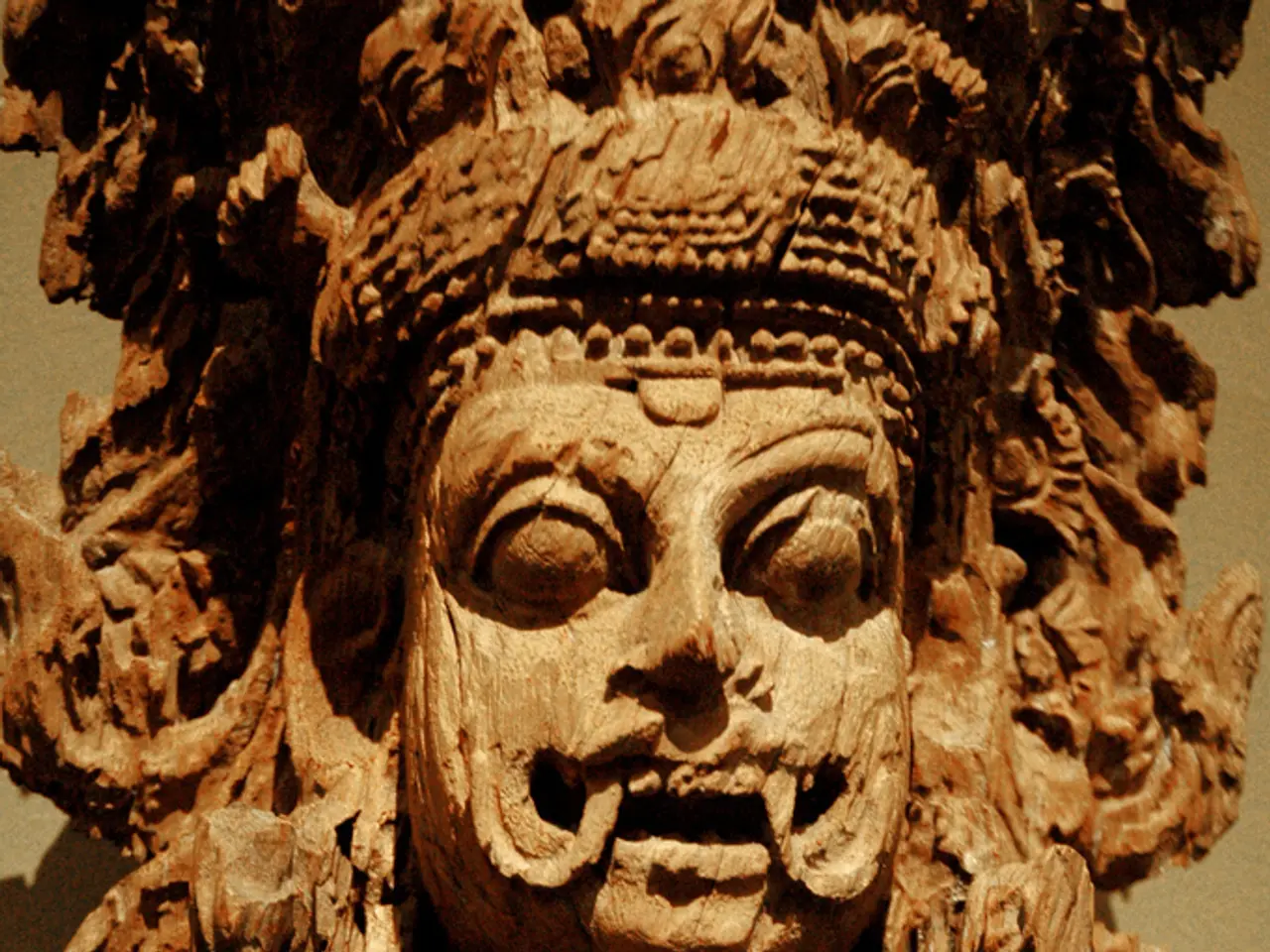Unearth the story of Caesarion, son of Cleopatra and Julius Caesar, who despite being royalty, never had a fair chance at life
In the tumultuous years following the assassination of Julius Caesar in 44 BC, a power struggle ensued among his closest allies. Among them were Octavian, Marc Antony, and Lepidus, who would later divide the Roman territories between them.
One of the most significant conflicts arose over the inheritance of Caesar's power and legacy. Octavian, who would later become the Roman Emperor Augustus, and Marc Antony clashed over this issue, leading to a civil war that would last for several years.
The conflict reached its climax at the Battle of Actium in 31 BC, where Octavian defeated Antony and Cleopatra's forces. The subsequent defeat in Alexandria marked the end of Antony and Cleopatra's reign, and the beginning of Octavian's ascent to power.
Caesarion, the son of Cleopatra and Julius Caesar, was a significant player in this power struggle. Despite not developing much of a relationship with Caesar, there is some evidence that Caesar acknowledged him as his son. However, Caesarion was not his official heir, according to Caesar's will.
After the battle, Octavian took nominal control over Cleopatra's children and heirs, including Caesarion. Despite this, Caesarion attempted to flee to safety, but he was killed by Octavian or someone close to him. The circumstances surrounding his death remain unclear, but it is believed that Octavian had him executed to secure his own legacy as Caesar's only 'son' and to eliminate any potential claimants to the throne.
By killing Caesarion, Octavian effectively removed a potential rival and cemented his position as the heir to Caesar's power and legacy. This action was part of Octavian's broader strategy to consolidate his power and establish himself as the dominant force in Rome following his victory over Antony and Cleopatra.
In the aftermath of Caesarion's death, Egypt was declared a province of Rome, and Caesarion became a forgotten footnote in the annals of ancient history. He was portrayed as divine progeny in Egyptian temples, depicted as Cupid-cum-Horus, king of Egypt. However, his legacy was eclipsed by that of Octavian, who would go on to become one of the most influential rulers in Roman history.
References: [1] Goldsworthy, Adrian. Julius Caesar: Life of a Colossus. Yale University Press, 2006. [2] Syme, Ronald. The Roman Revolution. Oxford University Press, 1939. [3] Dio Cassius. Roman History. Loeb Classical Library, 1917-1927.
Following the Battle of Actium, Octavian's conquests expanded to include Egypt, where he took control of Cleopatra's children and heirs, including Caesarion, the son of Julius Caesar. Despite the historical evidence suggesting that Caesar acknowledged Caesarion as his son, Octavian would later execute him, solidifying his own claim as Caesar's true heir and eliminating any potential rivals in the politics of Roman history.
In the subsequent years, Octavian's power and influence continued to grow, transforming him into one of the most dominant figures in the entire Roman Empire. The general-news of Octavian's ascent to power and the subsequent events in ancient Rome, such as the execution of Caesarion, are chronicled extensively in historical accounts like those found in Adrian Goldsworthy's "Julius Caesar: Life of a Colossus," Ronald Syme's "The Roman Revolution," and Dio Cassius' "Roman History."








